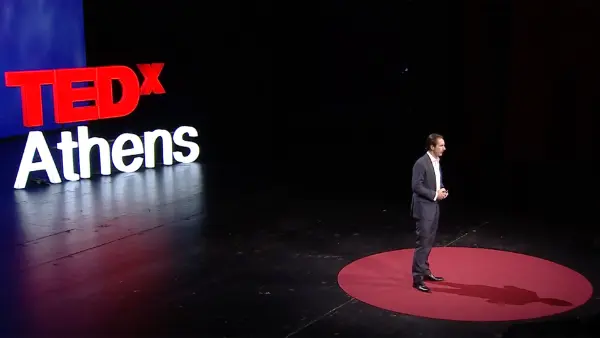Architects of the Intelligence Age: Redesigning Education to Thrive Amid Exponential Change

In the Intelligence Age, the classrooms of yesterday no longer suffice. We are at an inflection point, a unique historical moment where the capacity to adapt and evolve defines our very humanity. Amidst the relentless march of artificial intelligence, quantum computing, and other exponential technologies, education emerges as the crucial point, shaping not only the future generations, but how we actively sculpt our collective future.
The 21st-century educational landscape, rooted in paradigms birthed during the Industrial Revolution, remains largely unchanged. Rows of students passively absorbing information remain the norm, a methodology yielding a mere 5% retention rate. Yet outside these static classrooms, the world has undergone seismic shifts, rendering traditional pedagogies obsolete. If we continue deploying old solutions to new questions, it is tantamount to repairing a spaceship with medieval tools, utterly inadequate.
Education must urgently transition from passive knowledge transfer to active human empowerment, nurturing adaptability, creativity, and emotional intelligence. This shift is not merely philosophical, it is existential. Our future is no longer a distant horizon; it has crashed onto our shores as a tsunami of technological disruption as I discuss in my upcoming book Now What? How to Ride the Tsunami of Change. We are called not simply to react, but to proactively architect the very trajectory of this profound transformation.
Education at the Crossroads of Humanity and Technology

Today’s educational practices must evolve to meet unprecedented challenges. The advent of generative AI tools like ChatGPT starkly illustrates this urgency. Rather than embracing such innovations, educational institutions in regions including the U.S. and Australia initially sought bans, reminiscent of past resistance to calculators in mathematics classes.
Blocking progress is futile; instead, we must engage, understand, and integrate these tools into learning ecosystems. Effective education should align with intrinsic curiosity and natural inclinations. By shifting from rigid memorization to immersive, experiential learning focused on character building and skills, students learn by doing, engaging directly with the world rather than observing it passively from their seats, while preparing them for an ever-changing world.
Fortunately, multiple countries have now mandated the inclusion of AI in their school curricula. In 2025, the United States issued an executive order introducing K‑12 AI coursework and teacher upskilling, and China’s education ministry similarly required at least eight hours of annual AI lessons for all primary and secondary students by 2025, bolstered by pilot schools and teacher training initiatives.
In 2024, Singapore will passed regulation to require new “AI for Fun” modules in all primary and secondary schools from 2025, paired with fellowships to train AI‑proficient teachers. South Korea is rolling out AI‑powered digital textbooks in 2025 with dedicated teacher training and infrastructure support, while the UAE announced a compulsory AI curriculum for K–12 beginning in 2025–26, delivered by specially trained teachers with official resources.
Real-World Impacts and Transformative Insights

As the challenges and opportunities of the Intelligence Age grow, AI tutors represent the required paradigm shift, enabling personalized, adaptive, and immersive learning experiences that can respond to the complexities of the modern world in real-time. But this is not merely about embracing technology. It is about rethinking what it means to teach and to learn.
The transformative power of AI in education is already being harnessed globally. For instance, China’s Squirrel Ai has introduced AI-powered adaptive learning, revolutionizing educational accessibility and performance, particularly in rural schools. Within just a month, students demonstrated significant improvements in math and literacy, proving the efficacy of personalized AI tutoring at scale.
Similarly, Khan Academy’s Khanmigo offers students personalized learning journeys, empowering them through critical engagement rather than passive absorption. The nonprofit’s GPT-4 powered tutor was piloted in 2023 to provide guided tutoring dialogues, asking students probing questions instead of simply giving answers. By late 2023, over 28,000 students and teachers were involved in Khanmigo pilots across schools, with teachers reporting enthusiastic feedback. Early results showed that classes using the AI tutor saw about 20% greater improvement in quiz scores compared to peers . Khanmigo’s Socratic approach (e.g. hinting “What do you think is the next step?” in an algebra problem) led previously hesitant students to engage more, since the AI felt non-judgmental. Some teachers even used it as a “literary coach,” having students chat with AI personas of novel characters to deepen literature discussions.
In India, a range of edtech initiatives leverage AI for personalized learning. For example, the platform Embibe uses AI and augmented reality to clarify complex math and science concepts: a student can scan a textbook passage with a phone, and the app renders a 3D visual explanation to aid understanding. Embibe’s AI also predicts students’ performance and learning gaps, enabling early interventions.
Finland, known for its high-quality education, has embraced AI through a national commitment to educate citizens in AI and provide free online courses on the topic. Roughly half of Finnish schools use “ViLLE,” an AI-enhanced learning platform that gives students instant feedback and teachers detailed analytics on assignments. This system helps tailor instruction to individual needs in real time. Importantly, Finland’s approach prioritizes equity and ethics in AI use. The AI in Learning research collaboration (led by University of Helsinki) is exploring how intelligent digital systems can improve learning while tracking student wellness and providing insights to educators. By coupling innovation with research, Finland aims to ensure AI tutors augment learning responsibly and effectively.
As these examples show, education is undergoing a profound transformation in the Intelligence Age. The most cutting-edge examples around the globe share a vision of augmenting human learning, not replacing teachers, but empowering them and their students with new tools and mindsets.
Recent World Bank research from Nigeria further emphasizes the transformative power of generative AI in education. Deploying Microsoft Copilot (powered by GPT-4), students showed remarkable improvements in English proficiency, digital skills, and AI literacy. The pilot demonstrated substantial learning gains, equating to 1.5 to 2 years of traditional schooling within just six weeks, highlighting AI’s unprecedented efficiency and scalability. The program proved particularly beneficial for female students, showcasing AI’s potential to address educational inequalities effectively.
This approach is not isolated. Globally, institutions are beginning to grasp the necessity of harnessing AI and immersive technologies like the metaverse to create participatory, engaging educational experiences. Envision students virtually exploring ancient civilizations, navigating intricate biological systems, or collaborating on global climate resilience projects. Such scenarios are no longer speculative; they are rapidly becoming educational norms, redefining learning as an adventure rather than an obligation.
Philosophical Imperatives: Towards a Holistic Learning Model

Beyond technology, education in the Intelligence Age requires embracing holistic frameworks. The First Nations Holistic Lifelong Learning Model, developed collaboratively with Indigenous educators in Canada, emphasizes interconnected learning across body, mind, heart, and spirit. This regenerative approach sees education not as linear accumulation but as a lifelong, interconnected process. By integrating principles of experiential learning, cultural transmission, and a reciprocal relationship with nature, we foster empathy, resilience, and global responsibility.
Such holistic education encourages learners to appreciate the intricate interconnectedness of global systems, vital for addressing complex challenges like climate change, pandemics, and socio-economic inequities. Students must be equipped not just with technical skills, but with emotional intelligence, cultural competence, and an intrinsic understanding of their role within a larger global ecosystem.
Central to reimagining education is investing in educators themselves. Globally, teacher shortages pose critical challenges, UNESCO predicts a deficit of 44 million teachers by 2030. Teachers remain undervalued, underpaid, and overwhelmed, widening the gap between educational demands and institutional realities. Comprehensive teacher training programs must integrate technology literacy, adaptive methodologies, and holistic teaching frameworks to empower educators as guides, mentors, and catalysts rather than mere conveyors of static knowledge.
Educational budgets should prioritize human capital development, contrary to current trends such as the recent €1.2 billion cut by the Dutch government. Investment in educators equates directly to investment in our collective future, equipping generations to navigate exponential technological landscapes with agility and purpose.
To truly harness the potential of the Intelligence Age, we need actionable frameworks for systemic transformation. A future-ready educational ecosystem should incorporate:
- Personalized AI tutors: Adapting dynamically to individual learning styles, strengths, and interests.
- Immersive learning environments: Leveraging spatial intelligence, metaverse technologies, and augmented reality for experiential education.
- Integration of emerging technologies: Embedding 3D printing, blockchain, and quantum computing principles to align education with real-world, decentralized economies.
- Holistic learning models: Adopting indigenous methodologies emphasizing interconnectedness, lifelong learning, and holistic growth.
- Robust educator training: Upskilling teachers in technology literacy, adaptive education strategies, and emotional intelligence.
The Time to Act is Now

Education is humanity’s most potent tool to shape the trajectory of exponential change. Our capacity to learn, unlearn, and relearn will define our resilience and adaptability. We are not passive observers of the future; we are its active architects. The Intelligence Age demands a new educational paradigm; dynamic, inclusive, and ever-evolving.
Together, policymakers, business leaders, educators, and technologists must champion educational reform as a cornerstone of societal progress. By aligning technological advancements with human-centric education, we ensure that every individual can thrive amid uncertainty, innovating and leading confidently in a rapidly evolving world.
The future we desire—resilient, innovative, and interconnected—is not predetermined. It is ours to build, brick by thoughtful brick.







